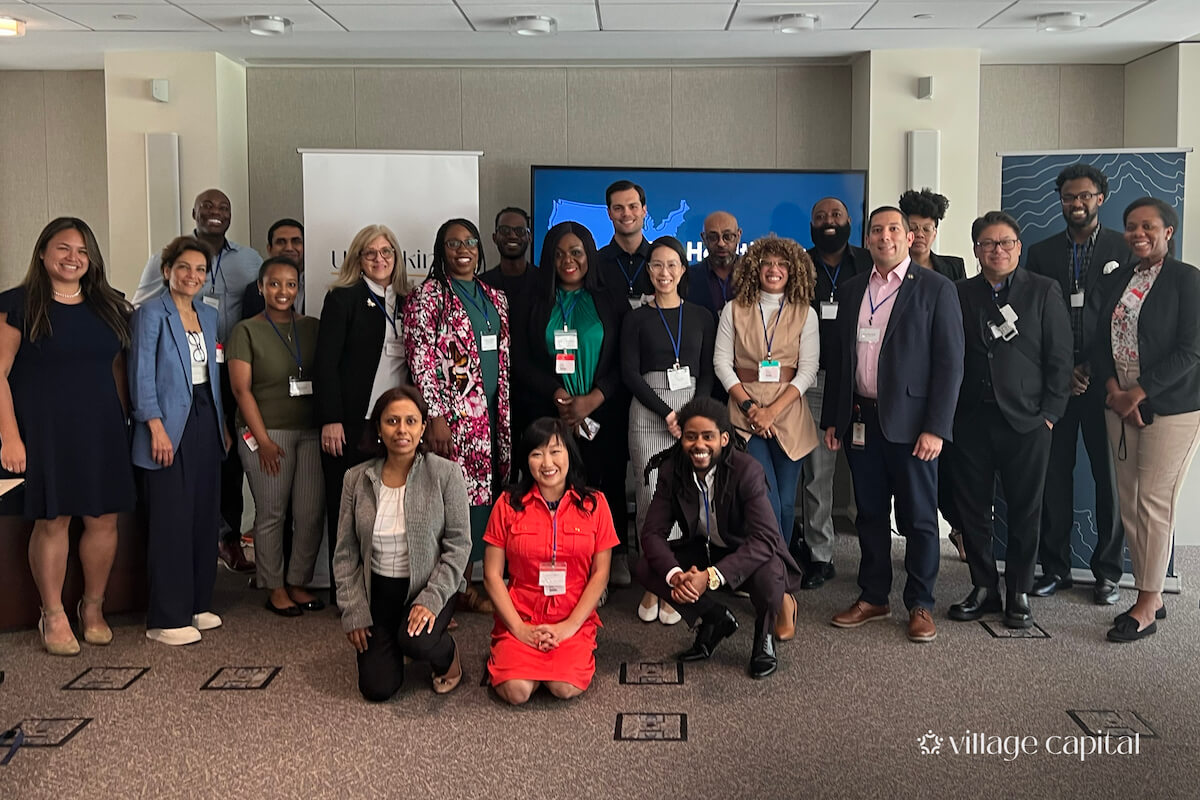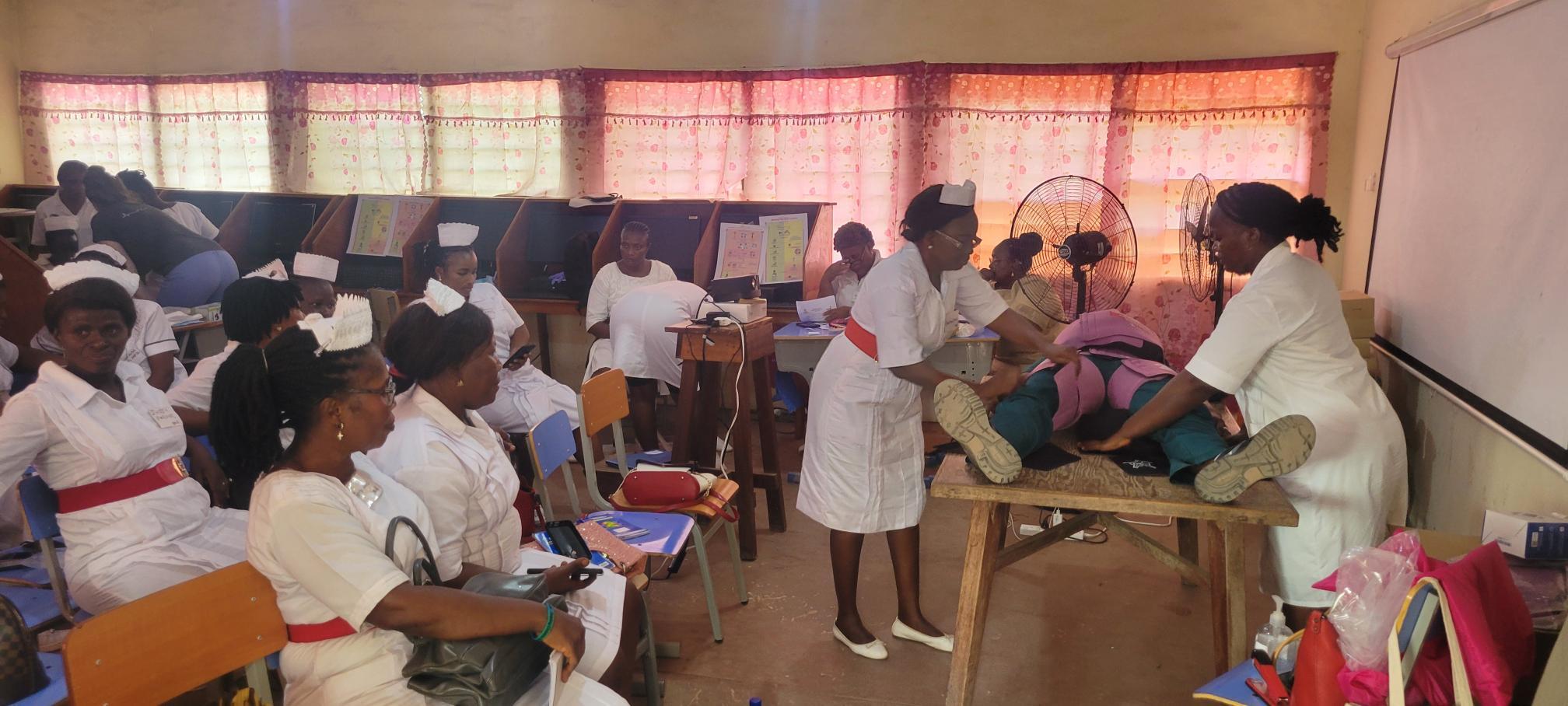Editor’s Note: Deonta Wortham of RockHealth.org, reviews the growth of the digital health innovation market, along with data that investors are missing some of the biggest opportunities. Informed by a research report published last fall, Wortham offers three questions that investors can ask themselves to ensure they are acting on the promise of digital health to impact the lives of all.
Every day, a new technological innovation hits the market that promises to transform the way that we live, work, play, learn, and connect with one another.
However, it has also become evident that technology can have adverse effects that exponentially impact millions of people—especially when hastily designed, deployed, and scaled.
Increasingly, this dichotomy is relevant for an emerging set of digital tools influencing our health. At Rock Health, we call these solutions digital health innovations. These innovations are helping patients to monitor their glucose levels, assess sleeping patterns, and access medical products and services through virtual marketplaces; providers to monitor the health status of high-risk patients and engage with other patients that live in remote settings; and payers and employers to provide an expanded array of services to increasingly diverse populations, among countless other use cases.
Especially emerging from the COVID-19 pandemic, digital health innovations play a growing role in our lives, with some analyses showing telemedicine adoption hitting 80% among surveyed consumers. Alongside growth of adoption, there has also been an acceleration of growth of digital health startups and the venture investment dollars that follow.
Since 2011, 1900+ U.S.-based digital health startups have been founded and have individually raised at least $2M in venture funding. From 2019 to 2021 alone, the total number of venture deals increased 77% (from 411 to 719). The total amount of capital that flowed to digital health startups increased a staggering 254% (from $8.2B to $29.1B). While the pace of investment in digital health slowed over the last 12-18 months, the improvements to infrastructure and expansion of business models in digital healthcare are just some of the reasons the sector continues to grow rapidly.
Lost opportunities for equitable impact
This is all exciting news. But when we take a closer look at who is developing and scaling digital health companies, we begin to see clear and concerning gaps.
In 2020, Rock Health surveyed 253 digital health founders, of whom 46% self-identified as white, 25% identified as Asian, 11% identified as Black, 6% identified as Latinx and 1% identified as multiracial. For gender, founders self-identified: 57% as men, 41% as women, 2% as non-binary and 2% preferred not to say. Over 50% of Asian and white-identifying founder respondents, respectively, shared that they were venture-backed, compared to 24% of Black-identifying founders and 48% of Latinx-identifying founders.
Across gender, nearly two-thirds of men founders shared that they were venture-backed, compared to 40% of women founders. Black- and women-identifying founders were more likely to bootstrap their companies.
Our survey pool, which aimed less to recreate the digital health startup industry and more to unearth insights from underrepresented populations, garnered us a more finely textured picture of issues embedded in venture funding distribution. Particularly when paired with industry-level venture capital trends in 2022 for female (2.1% backed), Black (1.2% backed) and Latinx (2% backed) entrepreneurs, for example, the diverse survey pool enabled us to emerge with unique insights about the challenges they face in accessing investment resources to scale their companies. These insights serve as a meaningful baseline capable of offering directional guidance to explore these issues and catalyze change.
Noting these observations, an important question arises—“What is the lost opportunity if we don’t support a diverse pool of entrepreneurs developing solutions that address our most pressing health concerns? And what is the opportunity if we do?”
The common experience women+ (cisgender women, as well as others whose health needs relate to those of cisgender women but may identify as transgender or nonbinary) innovators and innovators of color face when navigating the investment landscape illustrates meaningful challenges and opportunities that have implications for the digital health industry and society at large. And urgent action is needed to shift the status quo of investment dynamics within the digital health space.
Where can investors spur the biggest impact?
To fully realize this opportunity, the broadest array of innovators must be equipped with the resources needed to develop and scale solutions that have the opportunity to reach and impact the lives of all—particularly communities that persistently face systemic inequities.
Research has shown how diverse perspectives accelerate innovations, “the likelihood of financial outperformance” and “the next generation of leading companies and emerging industries.” Particularly in the context of health, it is imperative that we embrace, support and amplify the genius of bold founders across the digital health landscape and take concrete action to upend existing inequitable digital health investment patterns.
Too many digital health founders with the insight and ideas our health systems desperately need remain underfunded, spending precious resources and brain space to bootstrap their own solutions. Investors, including traditional venture investors and impact-oriented capital deployers, can support powerful and ambitious inroads toward achieving health equity in our country if they partner with these high-potential founders.
In 2022, RockHealth.org launched the Equitable Investment Initiative to understand how a broader array of investment resources could be directed to women+ founders and founders of color in digital health. Through our efforts, we have been in conversation with 100+ digital health entrepreneurs, venture investors, philanthropists, advisors and countless others to identify near-term opportunities for change. This effort was funded in part by Johnson & Johnson Impact Ventures, an impact fund within the Johnson & Johnson Foundation.
Questions investors can ask themselves today
Emerging from these discussions, the RockHealth.org team identified three questions that investors can ask themselves to expand their awareness of opportunities with diverse founders in digital health.
1. Has this innovator experienced the problem they are out to solve? If not, what are the potential blind spots they might have in developing the solution—and how are they correcting them?
As shared by Javier Evelyn, founder, and CEO of Alerje, “As [the U.S. population continues to diversify] in the coming decades, it will be critical not only for those communities but also for the entire country, to build tools and reprogram systems for inclusivity. This allows space for innovators with cultural context and awareness to build the tools and solutions that we will need tomorrow.”
2. How plugged in is this innovator to communities on the ground—are they connected with people with lived experiences of the problem they’re out to solve? Are they trusted individuals in those circles? If not, are they seeking that expertise on their team?
Ashley Edwards, CEO and Founder of Mindright Health noted, “The diligence process for mental health startups should include how they’re engaging with communities—there are some innovations that might actually be harmful to various communities. Investors should be able to answer the question, ‘At scale, how does this product/service impact the care of the most marginalized communities?'”
3. Does anyone on our investment team have a deep equity orientation, which may include expertise or lived experience with the specific problem or solution this innovator is developing? If so, can they join early discussions? If not, can we reach out to related third-party experts for additional insights?
Deena Lux, Partner at Lux Capital shared, “I’m quite used to being the only one in the room that looks like me. As I’ve grown… I’ve learned to lean into who I am and be more unapologetic—people want to work with investors who get it. For investors: Continue to focus on equity as a real opportunity for value creation. For startups: find yourselves investors who can align the overlay of value creation and equity—find investors who truly understand your space.”
For investors already committed to expanding their portfolio
These initial questions are stepping stones that are necessary to spark broader field-wide action and broaden the innovator profile in digital health. Investors and venture supporters that are committed to equitable investment practice in this space can consider the following steps to ensure that a broader array of investment resources flows to women+ founders and founders of color in digital health.
- Direct and allocate more funding to digital health innovators that identify as women+ and people of color that are leading innovations to expand the promise and potential of digital health.
- Support field efforts and related organizations that amplify and support the work of underrepresented and underfunded (UUDH) innovators.
- Determine your baseline and consider the next steps—for investors, this may mean auditing your portfolio and investment pipeline to ensure that UUDH innovators are represented.
- Broaden your networks by asking who is not at the table and engaging with the expressed purpose of connecting with and learning alongside transformative UUDH innovators.
- Share your reflections and learnings with colleagues in your organizations and your network.
We invite you to read more about these next steps in RockHealth.org’s inaugural report—Reimagining Opportunity and Innovation in Digital Health—and join us as we work to ensure an equitable digital health future for all. To learn more, please reach out to us at [email protected].
Deonta Wortham is chief of staff and director of strategy at RockHealth.org
RockHealth.org is a non-profit that advances equity-centered innovation in digital health. We take action towards a more inclusive digital health ecosystem by championing equitable design and innovation, supporting underrepresented innovators, and fostering a community of bold leaders across the healthcare landscape. Learn more about our industry-leading convenings and equity-focused investment and design initiatives at rockhealth.org.











